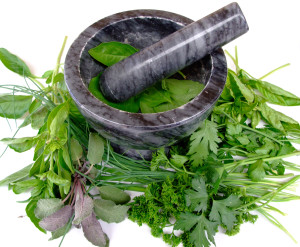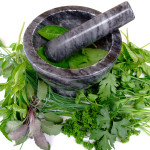 The best anti inflammatory herbs to get you started toward better health include turmeric, green tea, ginger, rosemary, and boswellia. Many other herbs and spices have anti inflammatory benefits as well, but this is a core set.
The best anti inflammatory herbs to get you started toward better health include turmeric, green tea, ginger, rosemary, and boswellia. Many other herbs and spices have anti inflammatory benefits as well, but this is a core set.
Turmeric or curcumin comes from the Indian spice curry and gives this plant-based anti inflammatory powerhouse its yellow color. Increasing amounts of research show that curcumin is helpful in everything from reducing inflammation in arthritis to promoting cancer cell death. The main issue with curcumin is that it is not always well-absorbed or utilized in the body. As a result, a number of manufacturers have moved toward making special forms, such as natural liposomal or nanoparticle carriers to get it into cells more effectively. If you decide to take curcumin in a capsule form, look for the more bioavailable brands – you have a better chance of benefiting from them.
Green tea contains many natural substances that have protective antioxidant and anti inflammatory effects. As a bonus, green tea consumption may also lower your cholesterol levels and even improve memory function. If you are sensitive to caffeine, try a naturally processed decaf green tea to get most of the benefits.
Ginger is a popular spice that can help cut down inflammation in the body. It may help reduce exercise-related muscle pain among many other benefits. This spice is valuable for people with various types of “-itis” pain – including arthritis, bursitis, and more. Dry powdered forms are OK for this purpose.
Rosemary is a member of the mint family and can really dress up the flavor of your main course at dinner as it serves up anti inflammatory effects. As with many other herbs, rosemary can reduce muscle and joint pain, protect against oxidative stress (free radical damage), and enhance digestion. Like curmumin, rosemary may also become part of the natural toolbox for preventing cancer cells from growing.
Boswellia is an anti inflammatory herb (Indian Frankincense) that is less well known in the kitchen, but it has been a well-respected member of natural anti inflammatory programs for many years. Research indicates that boswellia can cut down problems from a number of different chronic inflammatory conditions, including asthma, rheumatoid and osteoarthritris, and even inflammatory bowel disease. Still, remember that being “natural” does not always mean it is safe to use in any situation. For example, pregnant women should NOT use boswellia, as it may cause miscarriages.
For people suffering from side effects of pain killing drugs they have taken to treat the symptoms but not the root cause of the pain, studies suggest that ginger may help protect the liver from damage from acetaminophen types of drugs and help the bronchial passages relax instead of spasm in the way that ibuprofen types of drugs (nonsteroidal anti inflammatory drugs) can cause. Those synthetic medicines will only increase your risk of bleeding from your stomach and cause asthma attacks. In other words, you may help yourself instead of adding new problems if you rely on ginger instead of synthetic drugs for anti inflammatory benefits.
As with most nutritional strategies for reducing inflammation, you will typically notice a gradual rather than immediate benefit. Foods and herbs can take from 3-8 weeks to take full effect. Just stick with it and work these anti inflammatory herbs into your overall eating plan. You can find many of these as ingredients in combination herbal products. Most likely, you will find a way to lower your need for pain killing drugs and anti inflammatory drugs such as nonsteroidal anti inflammatory drugs. You’ll be glad you did.
